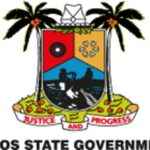Exposed: How Boko Haram is Funded, Role of Politicians, Foreign Governments
 The activities of a group which started as Islamist fundamentalists who are said to be against Western Education, has now grown into a full blown terrorist organisation, with international affiliations.
The activities of a group which started as Islamist fundamentalists who are said to be against Western Education, has now grown into a full blown terrorist organisation, with international affiliations.
The United States 2011 Country Report on Terrorism said: “Africa experienced 978 attacks in 2011, an 11.5 per cent increase over 2010. This is attributable in large part to the more frequent attacks of the Nigeria-based terrorist group Boko Haram, which conducted 136 attacks in 2011 up from 31 in 2010”.
But a recent report by Human Rights watch has it that there has been a dramatic increase during 2014 in the number of casualties from bomb blasts by Boko Haram, including several apparent suicide bombings where the sect has killed at least 2,053 civilians in Nigeria in an estimated 95 attacks during the first half of 2014.
According to investigations carried out by Reuters, this year, more than a dozen current and former U.S. officials who closely follow Boko Haram provide the most complete picture to date of how Boko Haram finances its activities and just as the United States, Nigeria and others in the international community struggle to track and choke off its funding.
It was however said that central to the militant group’s approach include the use of hard-to-track human couriers to move cash (inside Nigeria across the porous borders from neighbouring African states), relying on local funding sources and engaging in only limited financial relationships with other extremists groups. The terrorist group is also said to have reaped millions from high-profile kidnappings.
The US Treasury Department in a statement also to Reuters said that the United States has seen evidence that Boko Haram has received financial support from Al-Qaeda in the Islamic Magreb (AQIM), an offshoot of the jihadist group founded by Osama bin Laden.
The U.S. estimate of financial transfers from AQIM was in the low hundreds of thousands of dollars compared with the millions of dollars that Boko Haram is estimated to make through its kidnap and ransom operations in Nigeria and across its borders.
Funding Boko Haram
The Financing terrorism report however categorises the means in which Boko Haram receives its funds:
Terrorist Financing through Trade and Other Lucrative Activities (Sale of goods and other lucrative activities, business profits/logistical support, telecommunications, real estate attempts to create fictitious companies in Senegal, importation of used vehicles)
Terrorist Financing through Non-Governmental Organisations/Charities and Levies ( Financing through the financial system, Contributions (collections) from members of a terrorist group, Begging (alms collection) by vulnerable persons, extortion of civilians by means of intimidation, etc.)
Terrorist Financing through Smuggling of Arms, Assets and Currency; Cash Couriers (Arms smuggling at the Nigerian border, women serve as cash couriers and arms smugglers in Nigeria, Cash couriers and arms smugglers (between Burkina Faso and Nigeria, Cash couriers in possession of explosive devices (between Niger and Nigeria from the North of Mali, Financial Contributions of Political Leaders of Boko Haram.
It is widely also assumed according to reports in Nigeria that Boko Haram receives support from religious sympathisers within the country, including some wealthy professionals and northern Nigerians who dislike the government, although little evidence has been made public to support these assertions. Recently Cable News Network, CNN, reported findings of its investigations in which it was alleged that support from certain northern elite has as much of religious veneer as it has of cash.
The sect, it had been alleged in 2011 is being financed and backed by a former Prime Minister and President of the Islamic Republic of Mauritania. It is said that the 70-year-old Sunni Muslim, who ruled Mauritania both as Prime Minister and President before he was ousted in 2005 by a military coup has been identified by Nigerian intelligence services as a key facilitator, motivator and backer of the faction of the radical group.
However, Nigerian intelligence officials alongside those of Britain and the United States have in the last few months been gathering specific intelligence on the operations of the sect including its cross border channels in Mali, Mauritania, Burkina Faso and Niger Republic. Specifically, officials have been trailing sources of funds, expertise and sophisticated weapons being used by members of the sect.
In a mind-boggling report by CNN recently, pirate activities off the coast of Nigeria may also be linked to the activities of Boko Haram, following the kidnap and eventual release of Wren Thomas, an American ship captain in October 2013. The pirates it was reported first demanded the sum of $2 million ransom which payment could not be ascertained.
CNN further reports that “his hostage taking and the negotiations that freed him have raised alarm bells in counterterrorism circles and elsewhere for numerous reasons; not the least is Thomas’ claim that the FBI told him the money paid for his freedom may eventually have wound up in the hands of the notorious terror group Boko Haram”.
Yan St-Pierre, CEO of Modern Security Consulting Group, who also spoke to CNN said his contacts believe Boko Haram, once confined strictly to the northern parts of Nigeria, is benefiting from the increase in piracy along the west coast of Africa. But the group is perhaps not directly carrying out the kidnappings itself.
Piracy off the coast of Nigeria is on the rise, according to one study published by Oceans Beyond Piracy, a project of the One Earth Foundation. But in West Africa, the group estimates there were at least 100 total piracy attacks and characterized them as more violent and frequent.
Efforts at Countering Terrorism
Several efforts may have been put in place at combating terrorism within the sub-region, but is there the political will to this effect? Why are politicians and government officials indicted as sponsors of these terrorists’ activities not punished?
Though the issue of bad governance, corruption and lack of collaboration amongst parties saddled with the responsibility of countering terrorism within the country are said to be contributory, the Mutual Evaluation Report, May 2011 by GIABA, on Anti-Money laundering and combating the financing of terrorism in Nigeria indicated that the country has recognized the increasing menace of money laundering (identified as a way of funding terrorism) and is making efforts to confront the problem head long.
The report shows that money laundering in Nigeria is being perpetrated by criminals mostly through cross-border movement of cash, the real estate sector, banks, Designated Non-Financial Businesses Professionals, DNFBPs, and investment in securities.
Important counter-measures that Nigeria has undertaken include: the development of a National AML/CFT (Anti-Money laundering and combating the financing of terrorism) Strategy and Action Plan 2011-2015; passage of the Money Laundering Prohibition Act, MLPA 2011; AML/CFT compliance examination/inspection; registration of DNFIs; gazetting of AML/CFT guidelines for the Security Exchange Commission, SEC.
In addition, the authorities have been able to make key arrests towards the later part of the year in relation to the funding of Boko Haram operations. While one conviction has been secured, the trial of a prominent suspected financier was initiated in late 2011 and the trial is on-going. While these efforts are commendable, the Counter Financial Terrorism, CFT, regime still has some serious deficiencies that need to be addressed.
In particular, FATF’s Public Statement of October 2011 noted that Nigeria’s CFT regime is still insufficient with regard to the implementation of measures for identifying and freezing terrorist assets (Special Recommendation III), among others.
In response to the unhindered growth of terrorist attacks by Boko Haram, the Nation Assembly publicly admitted, towards the end of 2011, the deficiency of the Prevention of Terrorism Act (PTA) 2011 and the need to review the law.
The Organisation for Economic Co-operation and Development (OECD) is also taking action against terrorist financing activities. In October 2001, the OECD adopted a set of eight special recommendations to combat terrorist financing. In combination with the already existing 40 recommendations of its Financial Action Task Force (FATF) to combat money laundering, these 48 recommendations form the basic international framework meant to prevent and suppress terrorist financing and terrorist acts.
The World Bank and the IMF provide technical assistance to countries where the counter terrorist financing system is weak and where this can present a significant risk to good governance and development. Technical assistance from the World Bank and IMF is based on the introduction of new regulations based on best international practices, their application by authorities in the financial sector, the establishment of legal frameworks by financial intelligence bodies, the development of capitation programmes and public enlightenment to address the concerns of the private and public sectors as well as co-operation with other organisations under multinational programmes and the development of training materials.
However at the 2014 workshop on Detecting Cross-Border Cash Smuggling and Filing Currency Transaction Reports for Border Authorities in Nigeria, GIABA says this has become imperative, “given the intensification of the fight against money laundering (ML) and terrorist financing (TF) in the organized private sector, criminals in West Africa are increasingly targeting casinos, real estate agents, dealers in gems and precious metals, accountants and lawyers in order to launder the proceeds of their crimes.
The outcomes of the first round of the GIABA Mutual Evaluation exercise have also revealed that in spite of the AML/CFT laws and regulations applicable to DNFBPs, most of the operators within the sector are either uninformed, or are not in a position to comply with their obligations. This challenge is coupled with the weak institutional and regulatory frameworks designed to supervise the DNFBPs”.
Conclusion
There’s however a call for the government to stabilise security in the country, while attempts should be made at combating societal ills which invariably lead to crime and criminality.
The banks and financial institutions, the EFCC and other anti-crime agencies in the country should cooperate with the relevant agencies to help in the fight against terrorism in Nigeria.








